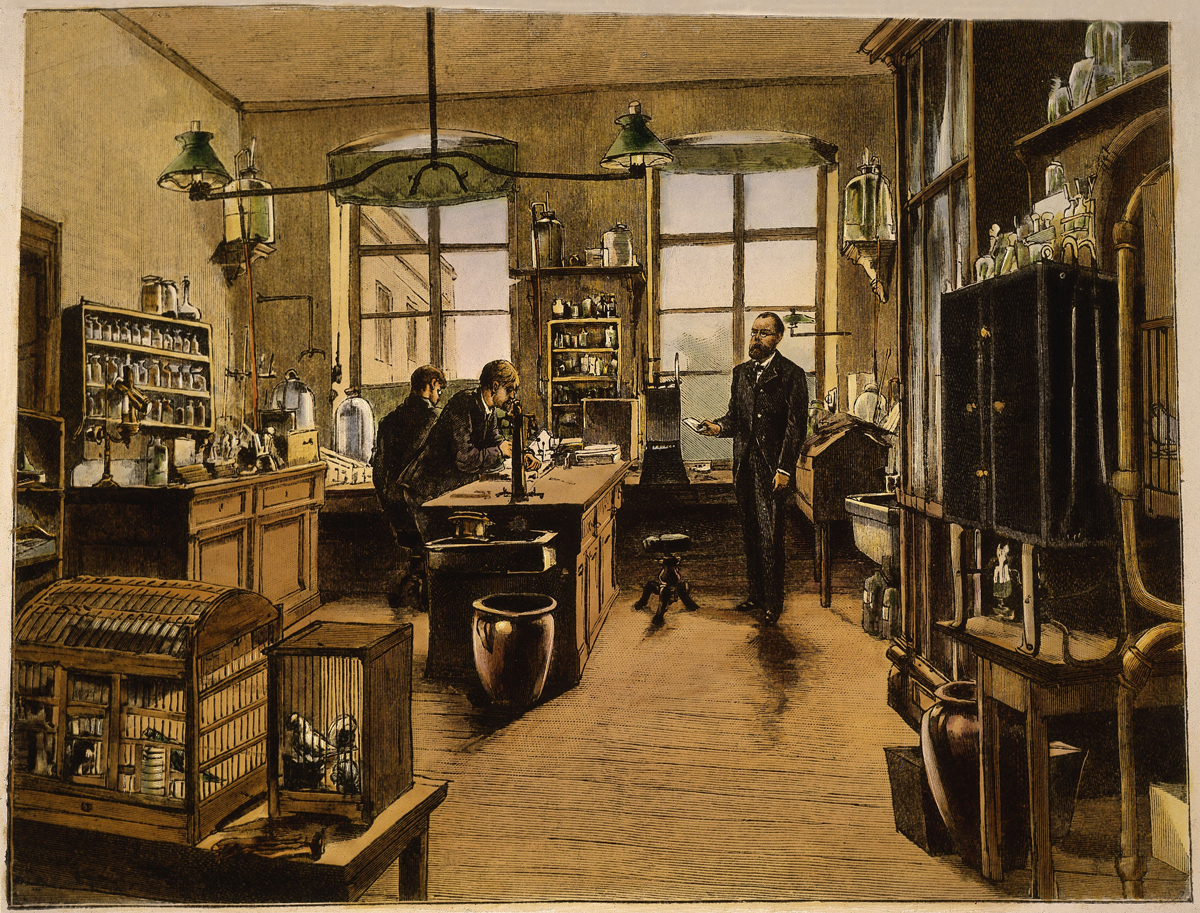Robert Koch in his Laboratory (c. 1891)
Abstract
Central to the production of knowledge in modern Germany was research specialization. Characterized by problem-solving élan, painstaking adherence to methodical procedure, imaginative persistence in the face of obstacles, and the thrill of discovery, research specialization presupposed the fragmentation of intellectual endeavor into ever-smaller domains of exacting concentration. Epitomizing both the rigor and the payoff of specialization was Robert Koch (1843–1910), the founder of modern bacteriology. His work on infectious diseases, above all tuberculosis, drew connections between certain microorganisms and specific diseases, greatly advancing the cause of public health. In 1905, his contributions to research were recognized with the Nobel Prize in Physiology or Medicine.
Source

Source: Robert Koch in the laboratory (c. 1891), colored wood engraving. bpk-Bildagentur, image number 00001923. For rights and reprint inquiries, please contact Art Resource at requests@artres.com (for the US and Canada) or bpk-Bildagentur at kontakt@bpk-bildagentur.de (for all other countries).
A version of this image was published in black and white in Die Gartenlaube, no. 1 (1891), p. 11 and 14–15. Available online at: https://de.wikisource.org/wiki/Bei_Robert_Koch
© bpk-Bildagentur